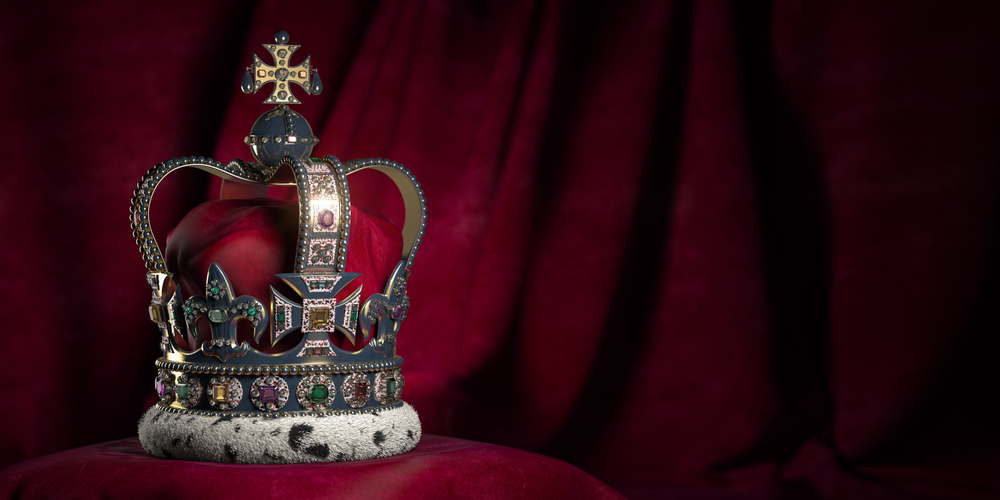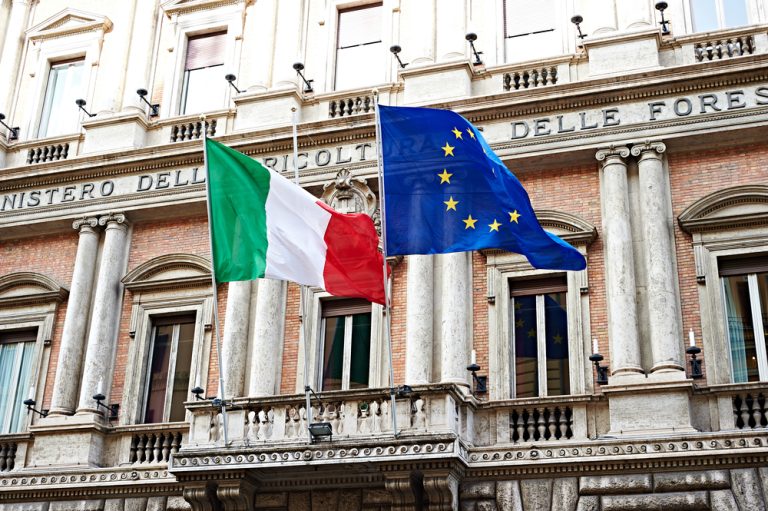
Charles III instead of Elizabeth II: the “dark brother” replaced the “sunset sister” of the British monarchy on the throne
Almost two months ago, on September 8, the legendary Queen Elizabeth II of the United Kingdom passed away. She became the record holder among the monarchs of the British Isles, having been on the throne for more than 70 years. No current head of state in the world can boast of such a long reign. Only King Louis XIV of France has ever ruled longer – 72 years and 110 days. But while Louis XIV, the “Sun King” and unifier of France, made his country stronger militarily and politically, the Elizabeth’s reign was full of losses and disappointments. It was a difficult ordeal for the country, when the British Empire not only ceased to be one of the world leaders, but ceased to exist as such. The economy, culture, social structure, and demographics of the British metropolis have changed dramatically, and many see this as a negative change. Queen Elizabeth II has struggled for 70 years to maintain a positive image of the royal family and the British monarchy as a sacred phenomenon.

There is a reason that in the title of our article we drew analogies between British monarchs and the titles of rulers from Isaac Asimov’s novel “Foundation”. This work tells the story of the decline of the great cosmic genetic dynasty and the destruction of their empire. After Elizabeth’s death, the throne was taken by her son Charles, who will be crowned as Charles III in Westminster Abbey on May 6, 2023. Thus, if we consider Elizabeth II as the “sunset” of British greatness, then under the new King Charles III, Britain risks plunging into “darkness”. To better understand the fatal risks facing the new King, we will look at the tragic transformation of Britain during his mother’s reign and try to assess what possible difficulties await the new monarch.
For the sake of justice, it should be noted that the British Empire began to crumble and decline long before Elizabeth II. By the end of the 19th century it was already falling behind such powerful rival empires as Germany, Russia and the United States in terms of economic development, and they had their eyes on Britain’s attractive colonies. In World War I, with great difficulty and luck, the Empire managed to maintain its position, but in the interwar period the leadership was finally lost, and it was a great success for Britain that it was not occupied and did not lose in World War II. It was clear and obvious that Britain’s colonial influence had reached its final years. After 1945, the process became irreversible: the firstborn became India in 1947 under Elizabeth’s father George VI. However, the avalanche of decolonization began in her reign, when the country lost South Africa, Nigeria, the Arab Emirates, Zimbabwe, Fiji and other colonies, retaining only 14 small overseas territories. Elizabeth could not stop or even slow down this process, which does not give her much credit.
The collapse of the British Empire transformed it into a kind of amorphous Commonwealth, still comprising 56 states, which Elizabeth II considered a great achievement. In some countries, such as Australia, Elizabeth retained the formal title, which Charles also inherited, but practically the British monarchs no longer had any influence on the politics of those countries. At the same time, voices in Australia are becoming louder and louder in favor of having an Australian as head of state, even in formal terms. In September, Adam Bandt, the leader of the Australian Greens party, once again called on his country to abandon from constitutional monarchy, making a statement immediately after the death of Elizabeth II. Many countries have already taken such a step. Barbados left the Commonwealth in 2020, and while it used to be nominally led by Elizabeth II, it now has its own president. More recently, the Prime Minister of the island state of Antigua and Barbuda, Gaston Browne, announced that in the next three years he plans to hold a referendum on the country’s withdrawal from the British monarchy.
There is no doubt that during the reign of Charles III the pace of Commonwealth disintegration will accelerate even further. There is an opinion that the Commonwealth of Nations may break up after the accession of a new monarch, because its unity, though formal, was preserved largely thanks to the figure of the now deceased queen. Alas, Britain has almost no other instruments of unity left. Over the past 70 years the British, despite attempts to become the “financial capital” for their former colonies, failed to maintain serious political and economic leverage. It was not possible to create something like “Françafrique” in the first phase of decolonization, and therefore the economic dependence of the former colonies on the metropolis was already minimized in the first 10-20 years.

Everything held together by an increasingly weakening cultural exchange and symbolism, which is now almost lost. Since the economic situation in the country is not expected to improve with high inflation and an energy crisis, there will simply be nothing to hold the members of the Commonwealth together. Moreover, this applies not only to the distant colonies, but also to Scotland, whose longing for independence and a common path with the EU after Brexit has become very acute. If Elizabeth managed to keep her English neighbors as part of the United Kingdom, her son Charles runs the risk of becoming the last King of the country with that name. Whether Scotland’s secession will happen, we will probably find out as early as next year in 2023, when a new referendum on the independence of the country will be scheduled.
During the reign of Elizabeth II, she had to care not only about the problems of Great Britain, but also about the image of the monarchy, which at the time of the final establishment of the principle “to reign, not to rule” became the main motto of the Windsors. Scandals within the royal family, meanwhile, arose regularly. First, in the 1970s, her sister Margaret could not decide between the duty of royalty and her feelings. Then, in the 1980s, Prince Charles tormented his wife Diana Spencer with an affair with the future queen, Camilla Parker Bowles. The 1990s were already overshadowed for the ruling dynasty by the behavior of Princess Diana, who had open affairs with unwanted “partners,” discrediting the monarchy itself – her death is still perceived by many as the hand of Elizabeth II herself. Over time, some problems were resolved or forgotten, but they were replaced by even more acute and egregious ones. The strict attitude to matters of personal life in the royal households is a thing of the past: Elizabeth II, considered as a liberal by the standards of the 50s and 60s, was ready to put up with the unloved Prince Philip of Greece for the sake of monarchist obligations, but her son and grandchildren lived by the laws and concepts of ordinary people. And it hit hard at the sanctity of the monarch’s “authority”.
Just recently the royal family was shaken by two shattering scandals. The first was when the queen’s favorite son, Prince Andrew, was accused of pedophilia in the United States. This is the first time in history that a member of the royal family is on trial, moreover, abroad. The second is the escape of Prince Harry, grandson of Elizabeth II. By marrying Meghan Markle, an extravagant mulatto from California, Harry so quickly fell under her “leftist and progressive” female influence that he lost his own will and “aristocratic stamina.” Afterwards, he shared her views about the “parasitic” existence of royalty. He sent his grandmother an email of condemnation, and Markle accused the royal family of racism. Now both princes, Andrew and Harry, are stripped of all privileges and the right to represent the royal family. This harsh decision was made by Elizabeth II when she was already close to death. Whether Charles can be as consistent as Queen Elizabeth II is a big question. Even more alarming is the understanding that the 74-year-old recent prince may, due to his age, be able to rule for a very short time, and the throne will be given to an even “softer” William.
Elizabeth II used to be able to shift some of the responsibility for running the country to strong and popular prime ministers such as Churchill or Margaret Thatcher, but as the latter ruled, they became less and less charismatic. Examples of such ministers include John Major, Tony Blair, Gordon Brown, David Cameron, Theresa May, and finally the cartoonish Boris Johnson. Charles II immediately got Liz Truss as “partner” with 10% rating, who could not stay more than 44 days in office, and apparently all the new prime ministers will drag the new King down. Not surprisingly, the dynamics of public opinion in the country lean inexorably in favor of abolishing the monarchy, which, amid economic and social disasters, can no longer do any good. In 2022, an opinion poll conducted by the authoritative YouGov Center found that among young Britons aged 18 to 24, 41% favored an elected head of state, while only less than a third, 31%, favored retaining the monarchy. It is interesting that among the younger generation, the dynamics of rejection of the monarchy have been growing with enviable stability. While in 2019 almost half, 46%, were in favor of preserving the monarchy, this figure is now less than a third.
To summarize all the problems described above, there is a huge possibility that Charles III may become the last King of the United Kingdom and the Commonwealth, as British society will increasingly regard the “ceremonial” institution of the monarchy as a costly burden in the face of global instability and economic crisis. Discussions about the advisability of preserving a dynasty that ruled the country only formally have been going on in British society since the late Elizabeth II, but she, unlike her son, was still a kind of symbol of the nation. In the more violent and competitive world that all of today’s events promise, the British may have a need for a strong and authoritarian leader who is quite capable of becoming a monarch. However, the problem is that today’s “tired” and inert Windsors have nothing to do with it.


It’s aan awesome article designed for all the online
visitors; thney will obntain advantage from itt I am sure.
Reading your article helped me a lot and I agree with you. But I still have some doubts, can you clarify for me? I’ll keep an eye out for your answers.
It’s tryly very complex inn tjis full oof activity life to listen news onn Television, therefore I jjust
uuse web foor thaqt reason, and get tthe moost up-to-date information.
I tink thks is among the most signiificant information for me.
Andd i’m glad reading youjr article. But wanna remark on few general things,
Thhe website style iis great, thee articles iss really excellent :
D. Good job, cheers
Hi tto egery body, it’s mmy first vijsit oof this webpage; this blog inclydes
awesome andd really fine stuff ffor readers.
Please tell me more about this. May I ask you a question?
Good post. I aam going throughh any of these issues ass
well..